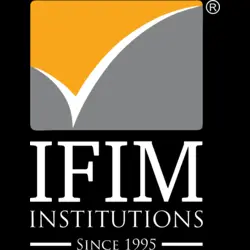Bachelor of Computer Applications is a popular undergraduate program that equips the students with essential skills and knowledge required and the rapidly evolving IT industry. BCA curriculum covers a wide range of core and elective subjects providing insights into their significance and how they contribute to students’ overall development. These subjects not only focus on theoretical concepts but also emphasize practical applications to tackle real-world challenges. This is an article with the information about BCA course detailing the core, electives, and specialization topics.
Year-wise Breakdown of BCA Subjects
The Bachelor of Computer Applications program typically spans 3 years. These 3 years are divided into 6 semesters, with 2 semesters each in a year. Each year builds the foundation knowledge gained in the previous year, gradually introducing more complex and advanced topics. The following is a general breakdown of the curriculum year-wise of the BCA.
This breakdown is a general overview of what a BCA curriculum looks like, while different institutions in different countries might offer slightly distinct structures.
Year 1, Foundation Year
Semester 1
1. Introduction to Computers – The subject deals with basic concepts of hardware, software, and types of computers.
2. Mathematics – Deals with basic mathematics that are relevant to computer science Such as discrete mathematics in algebra
3. Digital Electronics – Focuses on the fundamentals of digital circuits and logical design
4. Programming Fundamentals – Introduces to the level of programming languages Using C or Python
5. Communication Skills – Emphasizes how written and verbal communication skills are important.
Semester 2
1. Database Structures – Introduces the concept of data structures such as arrays, stacks, queues, and linked lists
2. Mathematics Part 2 – This is a continuation of mathematics of the foundation level with topics like calculus and probabilities
3. Computer Organization Architecture – This understands the importance of the structure and functioning of the computers
4. Database Management Systems DBMS – Focuses on the basics of database systems, SQL, and database designs
5. Environmental Science – Basics of environmental science as a general subject.
Year 2, Intermediate Level
Semester 3
1. Object Oriented Programming – Focuses on the concepts of Object Oriented Programming Languages using Java or C++
2. Operating Systems – Introduces the concept of Operating System Processes and Memory Management and File Systems
3. Web Technology – Focuses on the fundamentals of web development including HTML, CSS, and JavaScript
4. Mathematics Part 3 – Advanced topics such as Graph Theory and Numerical Methods foundation to the previous years
5. Software Engineering – Teaches the basics of the software development lifecycle, methodologies, and project management
Semester 4
1. Design and Analysis of Algorithms – Teaches the techniques for designing algorithms and analyzing their efficiency.
2. Web Programming – Introduces advanced web technologies and frameworks.
3. Computer Networks – Teaches the basics of networking, network architecture, and protocols.
4. Microprocessors and Assembly Language – Introduces the microprocessor architecture and assembly language programming.
5. Human Resource Management – Teaches the basics of HR management and organizational behavior.
Year 3, Advanced & Specialization Level
Semester 5
1. Mobile Application Development – Introduces to the world of mobile app development focusing on Android, iOS, and other software.
2. Data Science and Big Data Analytics – Introduces data analytics, tools, and big data technologies.
3. Cloud Computing – Emphasizes the basics of cloud services, models, and deployment.
4. Electives – These are the specialized topics based on the interests of the students such as AI, advanced databases, or cyber security.
5. Project 1 – This is the initial phase of major projects to be completed over the final year.
Semester 6
1. Information security – Teaches the basics of information security, network security, and cryptography.
2. Professional ethics and cyber laws – Emphasize understanding and maintaining the ethical and legal aspects of computing.
3. Machine learning – Introduces machine learning algorithms, applications, and tools.
4. Electives – These topics include further specializations of the student’s interests.
5. Project 2 – This is the major project to be completed and presented at the end of the year.
Core Subjects in BCA
The core subjects of the BCA provide a strong foundation in Computer Science Programming and Information Technology. The following is a detailed explanation of the core subjects of BCA.
| Subjects | Description | Topics |
| 1. Programming Fundamentals | This subject is an introduction to the basics of programming, semantics, and logic, and covers syntax using languages typically like C or Python. | Variables, data types, functions, basic input-output operations, and control structures. |
| 2. Data Structure | This subject is a study of how data should be organized, managed, and stored for efficient access and modifications. This is critical for developing efficient algorithms based on the understanding of different data operations and their performances. | Stacks, queues, trees, graphs, hash tables, arrays, and linked lists. |
| 3. Database Management Systems (DBMS) | This subject emphasizes on design, management, and implementation of databases with hands-on experiences with tools like MySQL, Oracle, or PostgreSQL. | Relational databases, SQL, normalization, database, design, transactions, and indexing. |
| 4. Software Engineering | This subject introduces the principles and methodologies for developing software covering various methodologies like Agile, Waterfall, and DevOps. | Project management, requirement analysis, design, coding, testing, and maintenance. |
| 5. Object Oriented Programming | The subject OOP introduces to the principles of programming and object-oriented design using commonly taught languages like Java or C++. | Inheritance, objects, classes, polymorphism, abstraction, and encapsulation. |
| 6. Operating Systems | This chapter is a study of fundamental concepts of operating systems. | Process management, file systems, input/output systems, security, and memory management. |
| 7. Design and Analysis of Algorithms | This subject deals with techniques for designing efficient algorithms and their performance analysis. | Dynamic programming, greedy algorithms, complexity analysis, and dynamic programming. |
| 8. Web Technology | This subject deals with web development and internet technologies with frameworks like Angular, React, or WUE.js. | HTML, CSS, JavaScript, web servers, and client-server architectures. |
| 9. Computer Networks | This subject emphasizes the basics of company networking, the implementation of network systems, and the design of network systems with tools and simulators that are relevant. | Network topologies, protocols, OSI and TCP/IP models, network security, routing, and switching. |
| 10. Human-Computer Interaction | This subject is a study of interaction between the users and the computers. | Usability tests, user experience, and user interface design. |
| 11. Information Security | This subject teaches the basis of security information and protecting data from threats within and outside the system. | Network security, application security, security policy, ethical hacking, and cryptography. |
| 12. Mathematics for Computers | The subject focuses on the mathematical foundations that are necessary for computer science and design algorithms. | Discrete mathematics, linear, algebra, probability, statistics, and calculus. |
Elective Subjects and Specializations
The following is the enumeration of the common electives and specializations available in the Bachelor of Chemistry applications program.
| Subjects | Description |
| AI | Artificial Intelligence Techniques, Machine Learning Algorithms, Natural Language Processing and Applications |
| Cyber Security | Study of Security Principles, Cyber Defense Strategies, Cryptography and Network Security |
| Big Data Analysis | Analyzing large datasets, data mining, data visualization, and predictive analytics. |
| Software Testing | Techniques and Methods for Software Testing Applications in Manual and Automated Testing Approaches. |
| Cloud Computing | Cloud Infrastructure Concepts, Services, Deployment Models, and Cloud Securities. |
| Mobile Application Development | Development of Mobile Application Platforms like Android, and iOS with UI, and UX Design. |
| Web Development | Frameworks and advanced topics in web development using Angular, React, or Vue.js |
| IoT (Internet of Things) | Introduction to Internet of Things architecture, devices, protocols, and applications across various domains. |
| Ethical Hacking | Techniques and methods for ethical hacking, penetration, and vulnerability assessment strategies. |
| Data Warehousing | Data integration, ETL processes, OLAP, and other concepts and practices related to warehousing and storage of the data. |
| Game Development | Designing and developing video games with game engines and scripting. |
Key Skills Developed in BCA
Through the BCA course, students can acquire a comprehensive set of skills for a successful career in the IT industry. The following are the key skills developed during the curriculum:
Programming Proficiency
Students gain hands-on experience with programming languages such as Java, C++, Python, and JavaScript to develop software applications, write efficient code, and solve complex problems.
Communication Skills
The curriculum also includes gaining effective communication, both in written and oral forms, which is crucial to outlet ideas and collaborate with others.
Database Management
Students acquire knowledge in database systems like SQL and NSQL to design, implement, and manage databases effectively.
Web Development
The course covers web development technologies including HTML, CSS, Javascript and server-side scripting to create dynamic and responsive websites.
Software Development
Students will learn to develop software programs gathering the basic requirements and later designing, coding, testing, and maintaining robust software solutions.
Data Analysis and Machine Learning
Students are enabled with skills to assess data analysis techniques, statistical methods and machine learning algorithms to develop intelligent applications.
Problem Solving & Analytical Thinking
Students can enhance their problem-solving and analytical thinking abilities through various projects, assignments, group sessions, and internships to methodologically develop effective solutions.
Further studies post BCA
Post-BCA graduation candidates have numerous options for further studies to enhance their skills and career prospects here are some of the popular and beneficial paths that open doors to specialized fields paying higher salaries and securing leadership positions:
1. MCA
MCA is Master of Computer Applications, focused on advanced computer science concepts and applications. This spans two to three years, deepening the technical knowledge, and opening opportunities for high-level roles in software development, system management, and IT consulting.
2. M.Sc.
MSc is a Master of Computer Science offering an in-depth understanding of theoretical and applied aspects of computer science. This course spans usually two years, and includes research roles, academic careers, and specialized IT roles.
3. MBA in IT
MBA in IT is a specialized topic combining business principles with IT knowledge. This typically spans two years and is ideal for those transitioning into managerial roles within the IT industry.
4. PGDM
PGDM is a postgraduate diploma in management offered by autonomous institutions focusing on management skills within various specializations which includes IT. This spans usually two years providing managerial skills and practical insights into leadership positions
5. M.Tech
M.Tech is Master of Technology in Computer Science focusing on advanced technical skills and research in specific areas of computer science. This spans two years ideal for technical expertise, research roles, or academic positions.
6. MS
Master of Science or related fields are available in the universities abroad. This spans one to two years, exposing the global sense of education and accessing international job markets.
7. Others
- Certification Courses – There are online certification courses for BCA graduates to gain specific knowledge in areas like networking, cloud computing, cyber security, and many more. These certificates add as an additional qualification to the portfolio landing better job opportunities or increasing the current salaries.
- Research & PhD Programs – These programs are ideal for those who are interested in research in computer science or related fields as an option. This helps to open up opportunities in academia, research institutions, and R&D roles in the industry.
- Diplomas – There are diplomas available being imparted by private institutions to gain basic knowledge in areas like game development, multimedia, animations, and other niche fields. These diplomas provide specialized skills as a stepping stone into specific industries.
Career Opportunities
BCA graduates have a wide range of career opportunities across various domains. Here are some of the prominent career paths:
1. Software Developer – Develop, Test and Maintain Software Applications for Desktop Applications, Mobile Apps or Software Solutions
2. Web Developer – Designs and develops websites and web applications to build responsive and dynamic web solutions.
3. Database Administrator – Manage and maintain database systems, ensuring data integrity, security, and availability.
4. System Analyst – Analyze and design information systems to meet basic business needs, bridging the gap between business requirements and solutions.
5. Network Administrator – Oversees and manages the computer networks within an organization to configure, maintain, and secure network infrastructure.
6. IT Support Specialist – It provides technical support and troubleshooting services for hardware and software issues.
7. Data Analyst – Analyzes and interprets complex data sets to make informed decisions
8. Project Manager – Leads and manages IT projects from inception to completion within the organization.
Tips for Success in BCA
Effective study habits
- Set a regular study routine that can be pursued consistently and manage the time effectively.
- Take notes and practice coding regularly to reinforce the concepts.
- Prioritize the important assignments and projects by breaking them into manageable tasks.
Utilizing resources and support systems
- Make use of online platforms, academic journals, and textbooks.
- Collaborate on an activity and participate in study groups to share knowledge and ideate.
- Seek guidance from faculty, Advisors, professionals, peers, and others for classification of concepts and career advice.
Balancing practical and theoretical learning
- Create a balancing schedule allocating time for both practical and theoretical learning.
- Plan a schedule that integrates theory to Deep in basic understanding and information which acts as a Foundation.
- Participate actively in internships and workshops to gain Real-world experience and insights.
Conclusion
In conclusion, BCA courses with a broad spectrum of subjects and specializations, help students to constantly grow in the IT industry with the knowledge and skills to stay competitive and relevant.
FAQs (Frequently Asked Questions)
- What are the core subjects in the BCA curriculum?
Programming languages like C, and C++, Data Structures, Operating Systems, Software Engineering, Computer Networks, Computer Architecture, Mathematics, Web Technologies, Computer Networks, and Management Systems are the foundation subjects.
- How do elective subjects in BCA help in career specialization?
Elective subjects allow specialization in areas like AI, cyber security, and mobile development programs including cloud computing. These specializations align with the studies and career goals meeting the industry demands and enhancing the prospective career growth.
- What practical skills will I gain from a BCA program?
A BCA graduate shall gain practical skills in programming proficiency, network systems, web development capabilities, problem-solving techniques, database management skills, and practical knowledge in the operating systems and the engineering process.
- Are there any specific programming languages I need to know for BCA?
C, C++, SQL, Java, Python, HTML, CSS, and JavaScript are the beneficial languages for a BCA graduate to be proficient in.
- What career opportunities are available after completing a BCA degree?
Post-BCA, the graduates can pursue roles such as System Analyst, Web Developer, IT Consultant, Database Administrator, Network Administrator, Software Developer, and roles in AI and cybersecurity fields. Higher studies like MCA are also the options available post-BCA.


